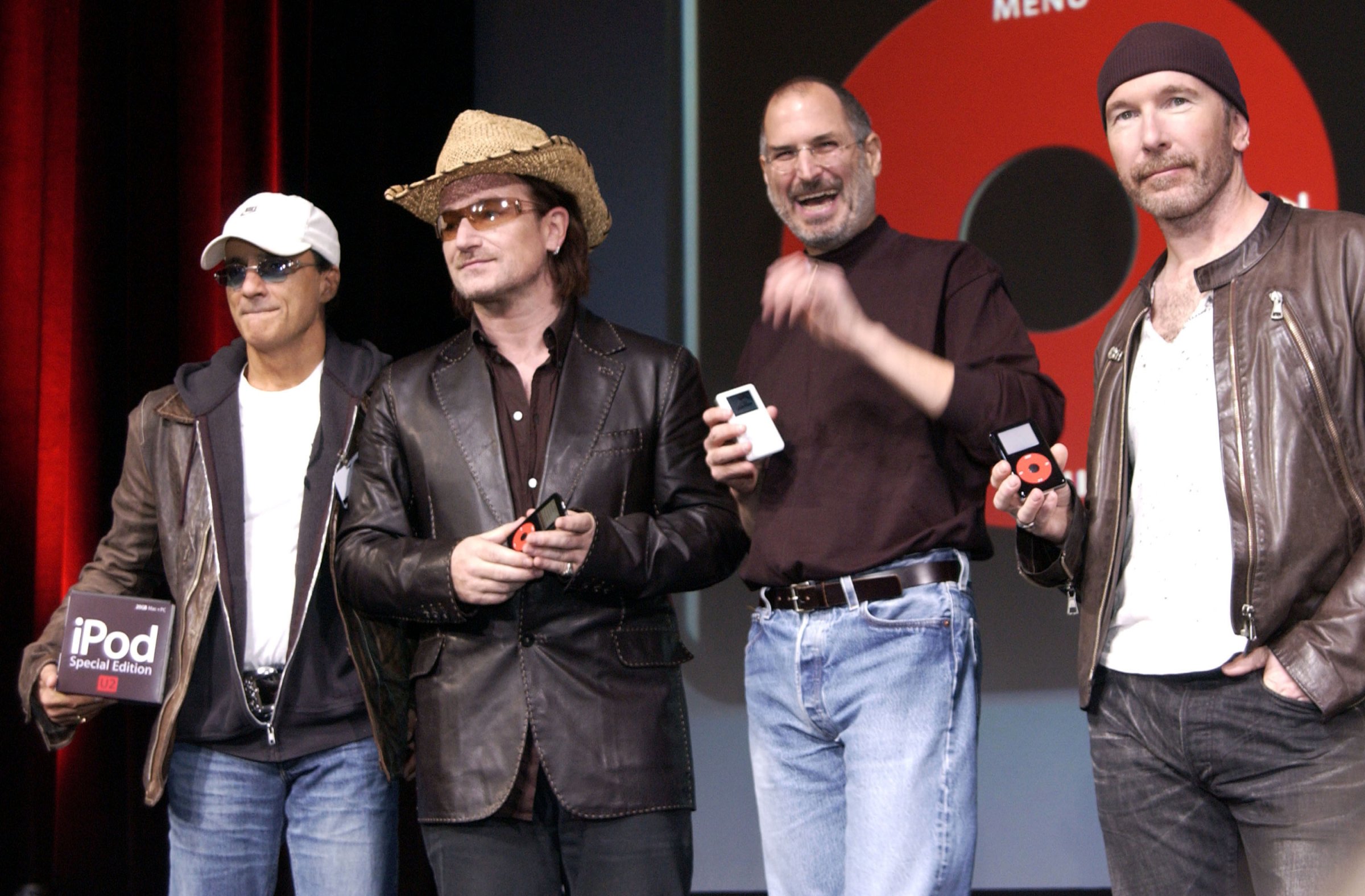
When brash and flashy record mogul Jimmy Iovine first met former Apple chief Steve Jobs back in 2002, he could barely suppress his excitement. “This guy is unique,” Iovine reportedly gushed to a colleague. Jobs had just shown Iovine a beta version of Apple’s iTunes, and Iovine was effusive — in his own, brash-talking way. “How Sony missed this is completely mind boggling to me, a historic f***up,” he said, according to Walter Isaacson’s Jobs biography.
So began Iovine’s decade-long flirtation with Apple, the company he courted, championed and is now finally set to join as Apple announced Wednesday that it would acquire Beats Electronics, a company Iovine founded along with rapping legend Dr. Dre.
The $3 billion deal, Apple’s biggest acquisition ever, will make Iovine and Dre senior advisors to Apple’s content division. It also marks a decisive turning point in Iovine’s career — after nearly 25 years at the helm of Interscope Records, where he locked in deals with Dr. Dre, Eminem and Gwen Stefani, among others, Iovine will leave the company for good, bringing with him an invaluable rolodex of music legends.
In many ways, the move also mirrors a wider shift of talent in the music industry away from discs and downloads and toward subscription-based services. Iovine has a long record of embracing changes in the music business while other execs were digging in their heels. When Jobs was struggling to persuade music executives to sell their content through iTunes, Iovine was raving about its user-friendly design. “[Iovine] can see around corners,” Sony Music chairman Doug Morris told the New York Times.
Not that he and Jobs always saw eye to eye — Iovine said in an interview with AllThingsD last year that he was pressing Steve Jobs to charge a subscription fee rather than a flat rate per song as early as 2003. “I was always trying to push Steve into subscription,” he said, “and he wasn’t keen on it right away.”
They never did quite come to an agreement, but that didn’t prevent them from signing a number of lucrative cross-promotional deals. Jobs brought the customers, while Iovine brought the artists, most notably U2. That band’s record sales skyrocketed in 2004 after it appeared in Apple commercials touting a limited edition U2-branded iPod.
Now that Iovine has made a grand entrance into Apple’s headquarters, wearing no less than a gleaming blue blazer and suede sneakers, as the New York Times observed, analysts wonder if his subscription-based gospel will prevail. The market is certainly moving in that direction, as streaming services like Pandora, Spotify and YouTube have already begun chipping away at Apple’s sales. Track sales in the iTunes Music Store fell in 2013 from 1.3 billion to 1.2 billion units, the first drop since iTunes opened for business more than a decade ago. Whether Iovine can engineer a rebound will depend on his ability to see around a corner that eluded even Apple’s visionary founder.
More Must-Reads from TIME
- Donald Trump Is TIME's 2024 Person of the Year
- Why We Chose Trump as Person of the Year
- Is Intermittent Fasting Good or Bad for You?
- The 100 Must-Read Books of 2024
- The 20 Best Christmas TV Episodes
- Column: If Optimism Feels Ridiculous Now, Try Hope
- The Future of Climate Action Is Trade Policy
- Merle Bombardieri Is Helping People Make the Baby Decision
Contact us at letters@time.com